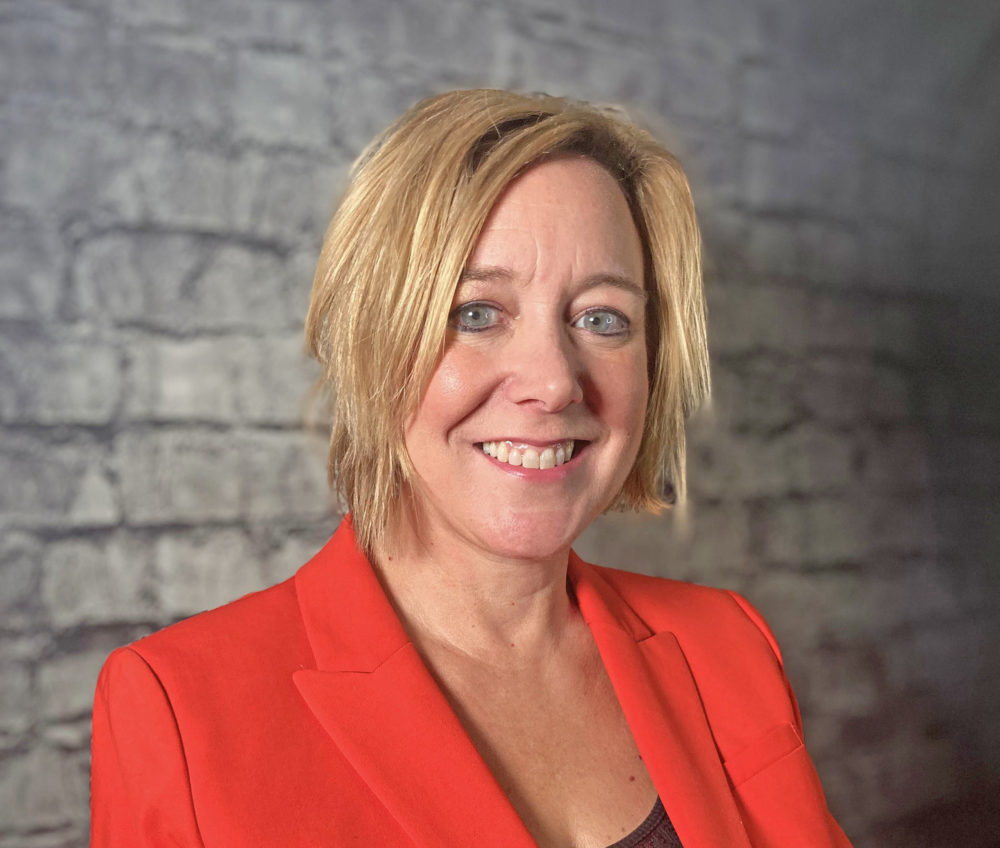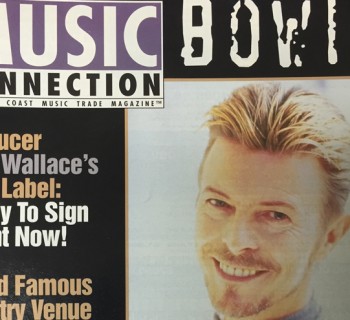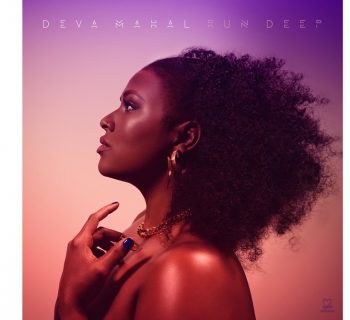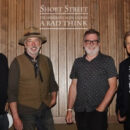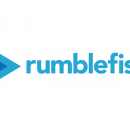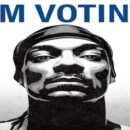Without A&R, record labels wouldn’t have any musical talent. These industry representatives are the key to discovering artists who create songs that change our lives. Likewise, they’re the gatekeepers to power, individuals that musicians must impress to kick their careers into overdrive.
Every year, we give our readers insight into a few select individuals who represent this side of the business, get a taste of what they think and how they operate. This year is no exception.
Allison Jones
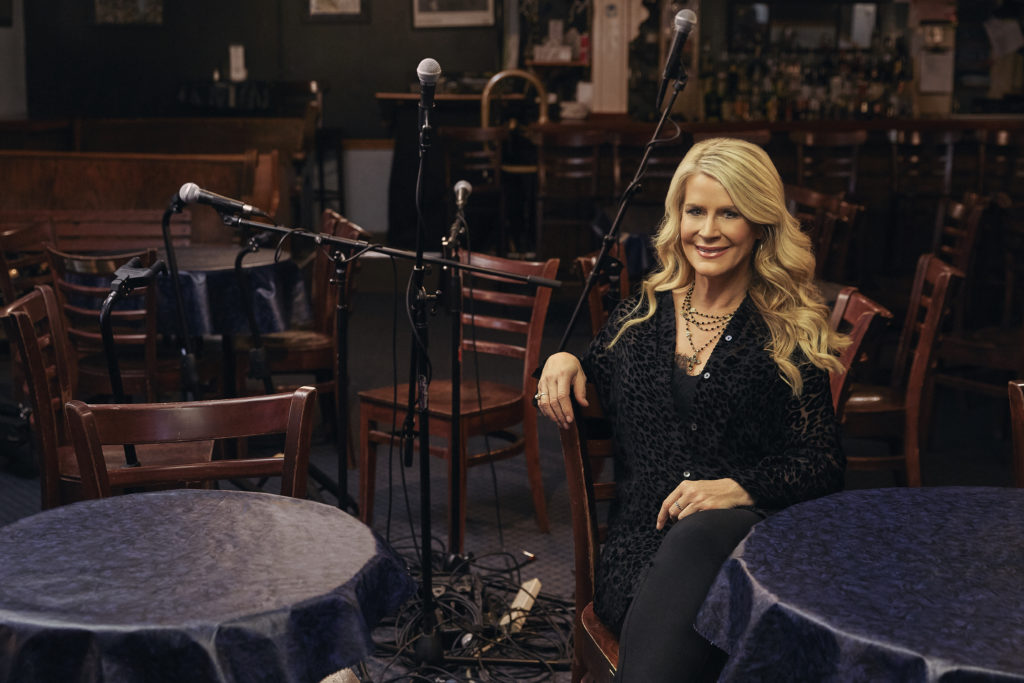
Allison Jones
Executive VP of A&R
Big Machine Label Group
How did you get into A&R?
I grew up enamored with music, playing piano and singing. I didn’t want to become a recording artist, but I was obsessed with every instrument, every genre, musical theater… I came to Nashville, went to Vanderbilt [University], and loosely wanted to pursue the music business. I kind of thought, do people really have jobs in the music business? At the time, Vanderbilt didn’t have any music-related majors. So, I did voice at the Blair School of Music [a part of Vanderbilt], but was a human resources and marketing major.
I got lucky and interned at RCA. They hired me to be the A&R assistant and receptionist at the newly formed BNA Records. I was working for Richard Landis, who was head of A&R. I don’t know if I understood how lucky I was. I graduated with honors and took at $17,000-a-year job without benefits because I loved it.
From BNA, I went to Giant Records. At Giant, I worked for James Stroud under Irving Azoff. Then James was hired to run DreamWorks Nashville, so I was there from day one. Scott [Borchetta] was head of promotions at the time. A lot of how Scott runs our label comes from the creative synergy of DreamWorks. I got the opportunity to have a front row seat to DreamWorks Pictures and TV and getting our music in there and working on soundtracks. That’s kind of morphed over into my job. In addition to A&R, my favorite side-hustle is exploiting third-party licenses for our artists in TV and film.
So then, DreamWorks merged with Universal. Scott was there about a year and said, “You know what? I want to do this on my own.” I stayed at Universal a bit longer, because I had a contract. I’m incredibly grateful that he asked me to join his team almost two years in.
What compels you to stick with A&R?
I love music. One of my favorite things to do is hop on an artist’s bus and spend a weekend seeing the fan reaction. I love the carny life of a tour and seeing artists get feedback from fans. There were a couple times where I felt like I was getting sick and then the energy of a live show made me feel better.
The other part is when you’re working with a new artist and hear their song on the radio or in Walgreens. I still get goose bumps every time I hear something I might have loosely touched.
How do you find artists? Is there one avenue you prefer over another?
There’s not one avenue. First and foremost, [it’s about] relationships and making sure I’m in communication with songwriters, artist managers, publishers, anyone who might be nurturing talent. It’s a relationship business.
Second, I’m obsessed with finding someone on social media. While I have a love/hate relationship with social media, the love wins out because I have several stories of where, if I wasn’t on social media, we wouldn’t have these artists.
I have two badass women who work with me, Darielle Schroeder and Carly Strickland. They are so connected to the newer, younger generation. They are on every platform, scouring for artists. If I see someone new, 95% of the time they are already aware of this artist.
What makes you want to sign someone? What can artists do to make themselves more attractive to A&R reps?
First and foremost, there’s that sizzle factor. You cannot teach or give someone the tools to have that intrinsic star quality. I’ve known Thomas Rhett his whole life, because I worked with Rhett Akins [Thomas’s father]. When he met me at age 19, I was like, “You don’t know me that well, but I’ve watched you grow up. You have so much star appeal and confidence.” And he’s like, “What do you mean?” I was like, “You are going to be that person that people want to be attached to.” I don’t think you can teach somebody that. Work ethic is key. I want to know an artist is willing to work as hard as we do. The ability to write a hit song or listen to a hit song and recognize it is key.
Conner Smith, one of our artists who I’m convinced is going to be a superstar, started writing with big-time songwriters when he was 16 or 17. He wrote with an artist-writer, Emily Weisband, who’s a good friend of mine. [Smith] posted something on Instagram and I texted [Weisband] immediately. “Oh, he’s in high school. He goes to Brentwood Academy and I’m writing with him. He’s so good.” I kept trying to meet him and found out Sam Hunt’s manager had also found him online. [Smith] had started recording covers [of Hunt] and putting them on YouTube. His first live gig was opening for Sam in front of 40,000 people. That story impressed me. His family wouldn’t let him sign a record deal until he graduated high school. I think three days after he graduated we offered him a deal. That’s just one story. Everyone’s is different.
The other thing is I stay in touch with agents, especially those who book small clubs. A lot of new artists are emerging from the Tin Roof circuit. It’s kind of like a college bar. The capacity is probably 500 people. They’re always open to new artists, so I like to stay in touch with agents that book those kinds of bars to ask––who’s coming up? Who’s putting in the work? Who decided to get in their van, sell their own merch and make their own way?
Do you use data analytics to make decisions?
Yes, in the sense of numbers. Analyzing the TikTok explosion has been very interesting. You can’t deny someone who recorded something in their bedroom that gets millions of views. So, in a sense, those analytics are important. But if a brand new artist walked in my office who was not on TikTok and I thought they were a star and had a hit song and they don’t have analytics, I’m not going to hold that against them. But the analytics certainly get people’s attention.
It’s interesting that more pop artists have emerged from TikTok than country. But we’ve had a lot of success with our country artists taking advantage of TikTok.
How is A&R changing? Are A&R reps supplanting the role that record labels used to play?
You can sit on your phone until 4:00 a.m. and find a handful of artists who are compelling. That’s exciting. Ultimately, the music has to lead. The artist has to want it. They have to have a good work ethic and star appeal. There has to be a hit song. Those things are always going to be key.
Ten years ago, if someone said, “I want to be a country artist. What do I do?” I’d say, “Move to Nashville, hustle, write with people, go to writers’ nights.” Now, I still give that same advice, but I also say, “Get on social media. Send direct messages to songwriters.” It’s a lot easier for an artist or songwriter to make their way because of social media and all the streaming platforms. It’s incredible that you have so many avenues to make your own destiny. But once you do that, you still have to put out compelling content.
I used to have five to ten showcases or writers’ nights a week that I was invited to attend. Now, people can put their live show on a streaming platform or their website. If it gets someone’s attention, you have a meeting. “Come into the office and play two or three songs acoustically.” That is the entryway, as opposed to years ago when someone had to get a band into a club and invite people to see them. That does still happen, but that’s kind of been replaced with exploiting yourself on streaming platforms or social media and hoping to get a meeting.
I’m a fan of seeing an artist perform acoustically in a conference room. Most artists will tell you that’s way more uncomfortable than performing in front of 20,000 people. If they can tackle that, I’m usually in.
What’s the biggest misconception about what you do?
People don’t realize all the business parts that go into it. Even within the industry, everyone thinks A&R people just listen to music all day. At Big Machine, the recording budgets originate with us. We are responsible for deadlines and getting music turned in. How many songs are they allowed to record? Circulating all the approvals and making sure the correct versions end up on streaming platforms.
In April of 2020, when we realized artists weren’t going to be touring, Scott said, “Let’s figure this out. What can we start putting on streaming platforms we normally would not when artists are touring?” If someone did an at-home version of a song for a morning TV show or an award show, A&R had to make sure those were mixed, mastered and ready to be released. That is not quite as glamorous as people think.
Another thing is [we do] anything [our artists] might need. “Hey, I need a guitar player this weekend. Mine is sick. Can you help?” Some artists lean on you more than others. I’m proud to say we try to be accessible 24-hours a day to our artists for anything they might need.
Has the pandemic affected the way you work?
Absolutely. We released two-and-a-half times more music than we had the year before, because every artist was home. A lot of new artists, I went to them and said, “Okay, you can’t tour. You can’t do TV. You can’t meet radio. You can’t meet streaming partners. Here’s what you can do. Own whatever you want on social media.”
Avenue Beat took it and ran. They were doing their own videos, their own artwork. Savana [Santos] was writing, recording and playing everything. Some artists became more creative than they probably could imagine. Lady A only had one outside song on their project, because they wrote so much.
It was like Christmas for me, because every artist was creating. It was daunting keeping up, but it was amazing watching all the creativity.
What genres are you soliciting?
My ears are always open. I don’t personally sign artists on the rock label, but I’ll pass along whatever I hear. I’m a fan of straight-up pop music, so we’ve signed a couple pop artists. I have a lot of relationships with pop writers; it’s been fun putting pop writers with our country artists and seeing what comes of it.
If someone has an artist they feel is a star, I want to hear it. We’ll figure out what to do with it. My ears are always open. •
Loren Israel
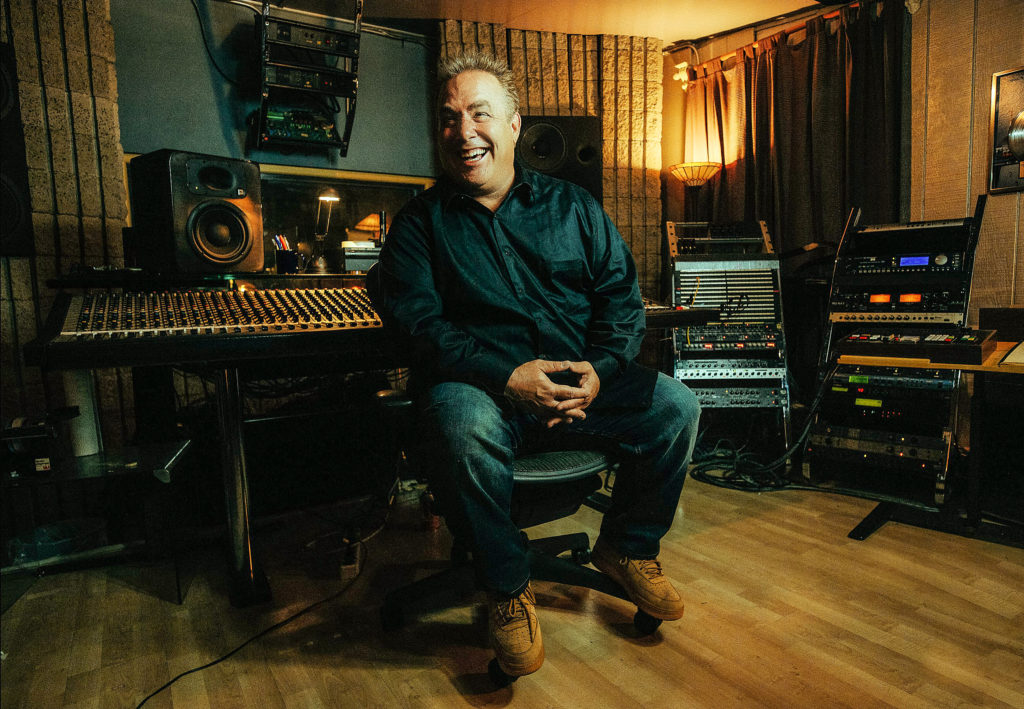
Loren Israel
Producer/A&R Consultant
How did you get into A&R?
I was performing in bands, touring and getting record deals since I was 16. I had three jobs, one at the surf shop and another teaching surfing. And I was bartending at an after-hours roller disco. I tried to get through school, but I found myself constantly going to hear music.
A lot of people in the music business don’t need the job. For those of us who need a career, it kind of finds us. I’ve always been involved in music. One of the A&R people I worked for used to see me at shows. And one of those days, he asked if I’d seen any cool bands. I told him and those bands became super big. Now, he was calling me all the time. I finally asked, “What does an A&R guy do?” And he told me. I’m like, that’s what I want to do.
I spent about nine months campaigning to get an internship. Frankly, it wasn’t easy. I finally got an internship at Capitol [Records]. I did that and had a few other jobs to make rent for like three years. During that time, I started producing and developing artists. And here I am.
What compels you to stick with A&R?
There’s nothing else I’m good at. I’m an evangelist for songs. I’m really good at identifying greatness. I’ve identified and helped a lot of great producers, great bands.
How do you find artists? Is there one avenue you prefer over another?
I’ve always found artists by having relationships, reading a lot, listening a lot, having curiosity. I do kind of old-school A&R. In my opinion, old-school A&R is true Artist, which is the voice, and R, the Repertoire, which is the song. And then seeing that song to completion and market.
A lot of times these days, something blows up on TikTok and you follow it, give a kid a deal, throw it at the wall and [see if] it sticks. I’m more committed to developing the artist as a whole and building a brand.
What makes you want to sign someone? What can artists do to make themselves more attractive to A&R reps?
A great voice. An understanding of the song. The understanding of how a chorus hits you. Great lyrics, sincerity… Usually, it’s a special voice. And then I dive deeper. Does this person have a good work ethic? Do they understand what a song is? How hard do they work?
Put out a lot of great music. You’ve got to be prolific. It’s like anything: the more you do it, the better you get. You can’t write six songs a year and think you’re going to get anywhere. That doesn’t sound correct in anyone’s calculus, you know?
Do you use data analytics to make decisions?
No. That’s what most labels are doing. But I would challenge people to do their homework and look at those artists that have blown up and have really good metrics on TikTok or Instagram and then get signed. They get signed to a label, maybe make a bit of money, but don’t really know what they’re doing. They don’t know the science of hit songs, why their song did so well.
And then there are a few people who can communicate to these artists what to do and how to do it. It’s a skill that’s different from scouting. And A&R, now, is a lot of scouting.
When I came up, it was true A&R. It was fights and conflicts and being in the studio begging your artist to change a melody so it’s simpler. Giving the melody a bit of space. Making sure every lyric is cool, using poetic devices and repetition.
How is A&R changing? Are A&R reps supplanting the role that record labels used to play?
The career of A&R has evolved. It’s gone from people like Sam Phillips and Berry Gordy and all these great guys who kind of are producers, who actually are in the room.
If something’s blowing up on TikTok and getting 30 million streams, people sign it, regardless if that artist knows what the heck they did. There’s one artist who had a wonderful song about four years ago. It blew up on TikTok and he got a record deal. I haven’t heard from them since. There are a lot of artists like that.
What I do is take someone with no tour history, no history of selling merchandise, no history of having any Spotify [streams], anything on the radio, nothing. And I help them go to a million records. I’ve done it several times, most recently with The Unlikely Candidates. That’s what I do. That’s a lonely, difficult place to be, because nobody wants to work with the artist when I work with them.
A&R people are part of a label. An A&R person is usually someone who has a job at a label and is responsible for bringing talent. So, I don’t know if they’re supplanting what a label does. They’re part of the process.
What’s the biggest misconception about what you do?
I don’t think people have a misconception of what I do. I kind of get shit done. I’m not the easiest person to get along with. I’m not the most difficult person to get along with. I’m honest. I’m hard working. I’m an equal opportunity professional. I just want to be around great songs. •
Manda Mosher
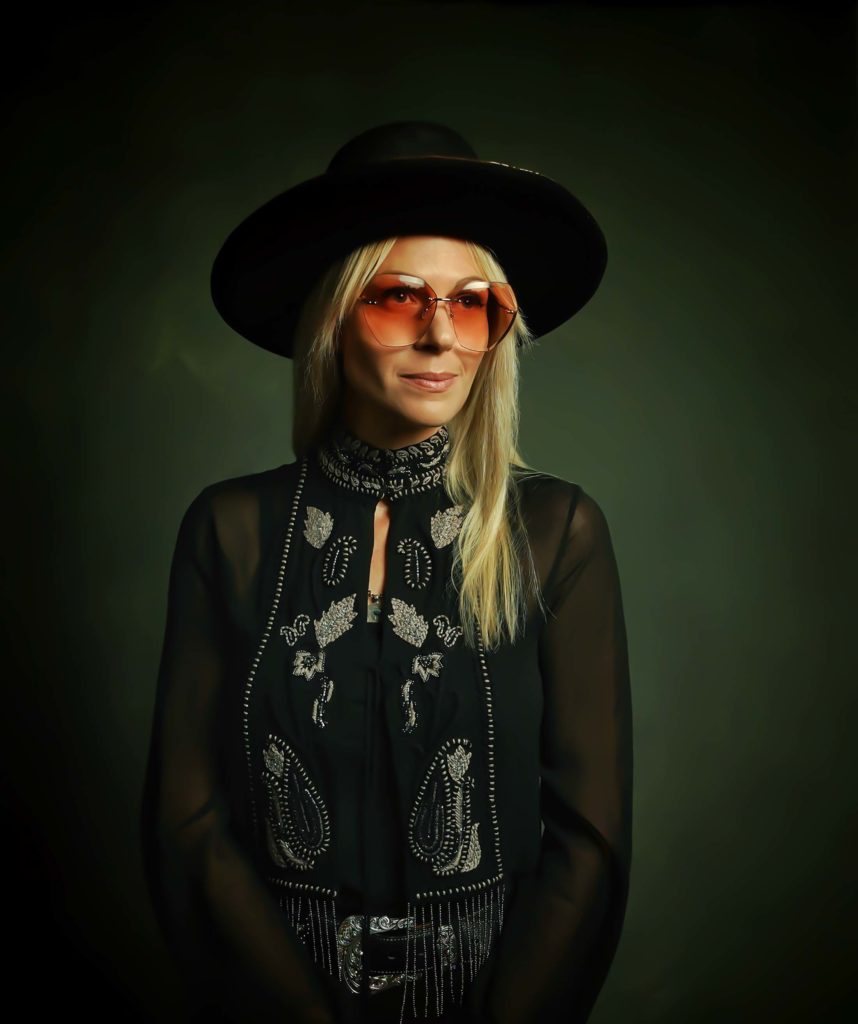
Manda Mosher
Co-owner
How did you get into A&R?
I’m an independent artist, but I’ve always had a strong propensity for the business side. That started when I went to Berklee College of Music. I was a songwriting major, but I came out of that wanting to get into the music business. I had this realization that, even if you’re incredible at your craft, if you’re not savvy on the business side you’re only going to go so far.
So, I started working for Andy Goldmark, who is a prolific hit songwriter and producer. He was also an A&R guy for Jive Records at the time. He recommended me for a record label position working for Zomba Music’s West Coast division under Neil Portnow. I had a great working relationship with him. Neil moved to the Recording Academy, so I went over with Neil. I was there a couple years before I decided to launch my first solo record and took the artist’s path.
I put out several releases with Red Parlor Records. After that, I was in a female group called CALICO the band. We had a manager who was shopping us. We did have label interest, but we kept hitting this wall. The kind of feedback we were getting was, “We already have a girl group, and we can’t have more than one.” At that time, there wasn’t as much room for women on label rosters.
We came back to the drawing board. I was like, “This group is great. I know we can do a lot with this.” My husband works for Lakeshore Records. He says, “I think it’s time to start our own label.” So, we started a label called California Country Records. It was created to release CALICO the band, but we ended up bringing other artists on. We had artists we wanted to work with who were not based in the California country sound, so we closed that label and kicked up Blackbird Record Label.
How do you find artists? Is there one avenue you prefer over another?
So much of it is word-of-mouth. It’s people we trust turning us onto artists. Sometimes, artists connect with us directly. Jeremy Squires reached out on social media. He kept sending material. We listen to a lot of what is sent to us, even if it’s a blind submission, out of curiosity. Certain things grab you.
LadyCouch came to us through another label we admire, Café Rooster Records in Nashville. They’re friends of ours and we’ve always admired how they run their label. They were on pause during the pandemic, and in the middle of an album release for LadyCouch. So, they reached out to see if we could pick up where they left off. That was the first time we’ve collaborated with another label on a release.
I prefer when artists or managers reach out. Anyone who’s submitting to us, I prefer one SoundCloud link that’s set to private, so we know it’s not released. That’s the easiest way to go. People send Dropbox links. We don’t want to get into or have time for that. A SoundCloud link is the easiest way for me to listen. It’ll take me a good two weeks or so to fully digest a record.
And then I’m thinking about sequencing, artwork, and if this is going to work for film and television. That’s important, because it’s one of the few remaining territories where artists and labels can still make money. So, if we’re going to take an artist on, we have to be able to find a film and television representative for them. We have a roster of sync agents we work with, so when we have new records that we’re excited about we’ll pitch them. If we cannot find a good film and TV match, it doesn’t mean we won’t take that artist on. But usually we have to pass, because financially it’s not going to make sense.
Has the pandemic affected the way you work?
Certainly gave us more time to work on the release schedule we had for last year. I dedicated more time to supporting those releases. I don’t know that it changed how we look for artists. It pretty much just gave us more time to focus on the label.
What makes you want to sign someone? What can artists do to make themselves more attractive to A&R reps?
It has everything to do with a great record: unique production, great songs, something that makes that project special and compelling. It’s really subjective.
I work on this label with my husband, Eric Craig. If something comes across his desk, he’ll be like, “Check this out. It’s beautiful.” We’ll take time with it. We send [artists] to each other and bounce off, like, “Am I the only one that’s in love with this?” Make sure we’re both really behind it.
Unique production is always interesting. We’re not working in full-on mainstream. A lot of our artists are Americana, rock, alternative… We’re pretty open. Straight-up singer-songwriters, we’re into that as well.
Visuals are important these days, so it helps if someone has a good press image. We like to work with the artists on all their imaging. They can create it themselves and pass it by us. If it’s not happening, we’ll say, “We think you need different PR shots,” or “We have an artist you probably should be working with. Check them out.” Or “Let’s reapproach your vinyl artwork.” We guide artists through the entire process of preparing albums for release.
And video assets are very important. We recommend at least two, if not four, music videos for any album release. For a single, we almost always require a video to go along with that. It’s hard for press to gain traction without a video component.
Do you use data analytics to make decisions?
Not really. Those numbers are not of great importance to us. It’s lovely if somebody has a great following on Spotify. It’s great if somebody’s socials are built up. We really appreciate that. But, at the same time, we are art over numbers. If someone has a beautiful record that we believe in and their socials need work or they play only 30 shows a year, we’ll still work with them.
How is A&R changing? Are A&R reps supplanting the role that record labels used to play?
There are things I miss from when I worked at Zomba. A&R was a more hands-on process. Your A&R person would find the right producer, the right song, build everything from the ground up with an artist. A lot of that art has been lost, primarily because the budgets don’t exist the way they used to. And labels frequently have to deal in volume to make things work. And when volume matters, the art of A&R can be lost.
There is more pressure on artists to develop themselves [than before], and the labels cherry pick whichever artists have developed in a way that looks attractive. We’re frequently working with records that are done. We’ll go in and have notes on sequencing, if something needs to be remastered, if a song needs to be cut, or if we don’t feel it’s complete. But as far as being on the ground level developing an artist, that piece does not exist strongly now. A&R is one piece of what we do. I look at it as curating a roster and then guiding artists in the best way you can.
What’s the biggest misconception about what you do?
I see artists rail against the thought of any other entity having control over the creative process. That’s a fine line. We do not impose our ideas onto an artist in any way that would make them uncomfortable. If you’re not liking our suggestions, that’s okay. We want the artist’s vision to be what pokes through. We’re not here to battle our artists. We’re here to help see their vision through. Ultimately, the artist has final say in their creative work.


